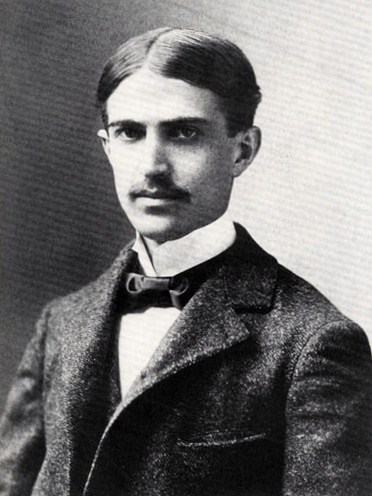Stephen Crane (Stephen Crane)

Novelist, Short-Story Writer, Poet. He is often called the first modern American author. Although he died at the age of 28, he produced a body of work that has won him an enduring place in his country’s literature. Crane was initially hailed as a realist in fiction, but there are elements of impressionism, naturalism, and symbolism in his style, woven together with a powerful sense of irony. Many of his characters vainly try to impose their emotional will upon indifferent natural forces. His poetry anticipated the freer techniques of much 20th Century verse. Crane was born in Newark, New Jersey, the son of a Methodist minister. He studied at Lafayette College and Syracuse University before moving to New York City in 1891 to work as a freelance journalist. His observations of slum life inspired his first novel, “Maggie: A Girl of the Streets” (1893), about a teenager who copes with her brutal environment through romantic daydreams. When these are finally shattered she becomes a prostitute, then a suicide. Crane printed the book at his own expense after publishers repeatedly rejected it, and it was ignored by reviewers. His next and greatest novel, “The Red Badge of Courage” (1895), was, as he put it, a study of fear. Fascinated with the Civil War but unsatisfied by “dry as rock” accounts from veterans he had read in magazines, Crane endeavored to show how soldiers in that conflict felt rather than what they did. His success was all the more remarkable because he had no military experience and had never witnessed combat firsthand. Presented through the character of young Union soldier Henry Fleming – whose dreams of glory evaporate with his first taste of battle, subsequent flight, and final return to his regiment – “The Red Badge of Courage” was an entirely new take on war literature and made Crane internationally famous. His status as an important talent was confirmed with the poetry collections “The Black Riders” (1895) and “War Is Kind” (1899), the novels “George’s Mother” (1896) and “Active Service” (1899), and three collections of short stories; outstanding among the latter are the tales “The Open Boat”, “The Blue Hotel”, “The Monster”, and “The Bride Comes to Yellow Sky”. “The Open Boat” was based on Crane’s experience in a shipwreck off the Florida coast in January 1897, in which he spent 30 hours adrift in a dinghy before managing to swim to shore. H. G. Wells, who considered Crane the finest author of their generation, called the story “beyond all question, the crown of all his work”. In the meantime, financial difficulties and speculation over his unconventional lifestyle were driving him out of the United States. He was known to frequent brothels, though he claimed it was only for “research purposes”, and from 1896 he lived openly with his companion Cora Taylor, the owner of a Florida bordello. To escape the gossip he took assignments as a correspondent for the New York press to cover the Greek-Turkish War and Spanish-American War, and he settled in England in 1897. His friends there included Wells, Joseph Conrad, and Ford Maddox Ford. The last years of Crane’s short life were darkened by tuberculosis, and he died soon after arriving at a health spa in Badenweiler, Germany. He left an unfinished novel, “The O’Ruddy”, which was completed by others and published in 1903. “The Red Badge of Courage” gradually acquired the status of an American classic, while biographies by Thomas Beer (1923) and John Berryman (1950) helped maintain scholarly interest in the rest of Crane’s output. His influence was felt by the Imagist poets of the early 1900s and the post-World War I “Lost Generation” of authors. Ernest Hemingway, so stingy in praising fellow literati, had this to say in 1936: “The good writers are Henry James, Stephen Crane, and Mark Twain. That’s not the order they’re good in. There is no order for good writers.” (bio by: Bobb Edwards) Family links: Parents: Jonathan Townley Crane (1819 – 1880) Mary Helen Peck Crane (1827 – 1891) Spouse: Cora Ethel Eaton Howarth Crane (1868 – 1910) Siblings: George Peck Crane (1850 – 1903)* John Townley Crane (1852 – 1908)* Agnes Elizabeth Crane (1855 – 1883)* Edmund Bryan Crane (1857 – 1922)* Wilbur Fiske Crane (1859 – 1918)* Elizabeth Townley Crane (1861 – 1866)* Luther Peck Crane (1863 – 1886)* Almira Blanche Crane (1865 – 1866)* Jessie Peck Crane (1867 – 1867)* Elizabeth Blanche Crane (1868 – 1868)* Jesse Peck Crane (1869 – 1870)* Stephen Crane (1871 – 1900) *Calculated relationship
Born
- November, 01, 1871
- USA
Died
- June, 06, 1900
- Germany
Cemetery
- Evergreen Cemetery
- USA

